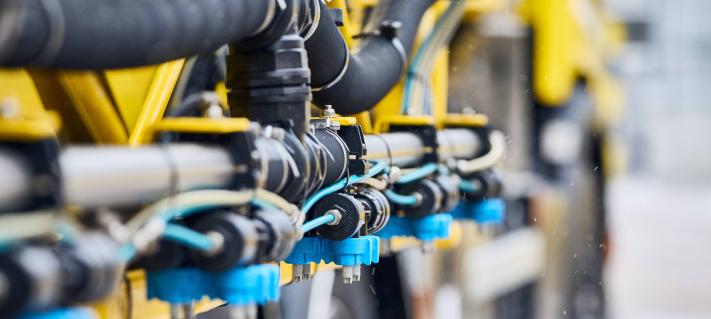According to the Air Transport Action Group (ATAG), a not-for-profit organisation that represents all sectors of the air transport industry, aviation accounts for 2% of global man-made CO2 emissions.
International aviation seeks to grow in a carbon neutral manner from 2020 as the International Civil Aviation Organization (ICAO) has agreed on a global mechanism to manage emissions. After 2020, airlines are due to offset any growth in emissions with credits from emission reduction projects. The system is called Carbon Offsetting and Reduction Scheme for International Aviation, or CORSIA.
The air transport industry is constantly exploring means to reduce emissions – one of them being the use of sustainable aviation fuels.
Can renewables become the norm?
ATAG says that alternative fuels – in particular, sustainable fuels – provide an excellent way to achieve industry targets.
“We at ATAG believe that alternative fuels will be the true game changer when we look at long-term development toward 2050. At the moment, there are no longer technical barriers for renewables becoming the norm, but the issue is commercial,” explains Michael Gill, Executive Director of ATAG. “How do we create market conditions and policy frameworks that make it economically viable for airlines to fly on alternative fuels?”
To help bring down air transport emissions, cooperation between airlines, airports and fuel producers – along with governments – is essential.
Waste-based fuels already tested on flights
New solutions for renewable jet fuels have already being tested on several commercial flights in the 2010s. Renewable jet fuel solutions include plant-based fuels made of, for instance, algae, jatropha or camelina, or waste-based solutions.
For instance, Finnish renewable diesel supplier Neste has created products that use animal fat from food industry waste, fish fat from fish processing waste, used cooking oil and technical corn oil and other lower quality wastes and residues to produce renewable fuel.
The company’s Winter Grade Renewable Fuel was successfully tested by the airplane manufacturer Boeing as a component of aviation fuel. A Boeing 787 Dreamliner, tested in the US, performed as well with the renewable fuel blend as it does with fossil jet fuel.
In 2011, Lufthansa tested Neste's other renewable product, MY Renewable JetFuel, on 1,187 scheduled flights between Frankfurt and Hamburg, as well as on an intercontinental flight between Frankfurt and Washington D.C in early 2012. According to Neste, the trial showed that renewable diesel reduced CO2 emissions by a total of 1,500 tons for the aforementioned flights and improved the efficiency of the engines.
Airport buses run on waste-based fuel at Helsinki Airport
Finavia's apron buses that transport passengers between the terminal and planes at Helsinki Airport also run on renewable diesel made entirely from waste and residues.
“Airports are frontrunners in the industry in incorporating sustainable solutions. Some airports are already being operated in a carbon-neutral manner, which means a constant reduction of emissions and offsetting of residual emissions. Helsinki Airport achieved this carbon neutrality last year. One of the measures to cut emissions in airport operations is to use renewable fuel in vehicles. It is technically the most feasible means to reduce emissions without changing the whole fleet of buses and cars,” says Mikko Viinikainen, Vice President of Sustainability at Finavia.
“Globally, only a few airports have begun to use renewable diesel. We have an advantage in the fact that it is produced ‘right around the corner’— at the Neste refinery in Porvoo,” shares Johanna Kara, Environmental Specialist at Finavia.
The idea is that by the end of 2018, all of Finavia’s diesel equipment at Helsinki Airport will use renewable diesel.
Read about how planes are refuelled
Read about the five actions that ensure Helsinki Airport's carbon neutrality
At Finnish airports, apron buses may run on recycled Christmas ham fat




